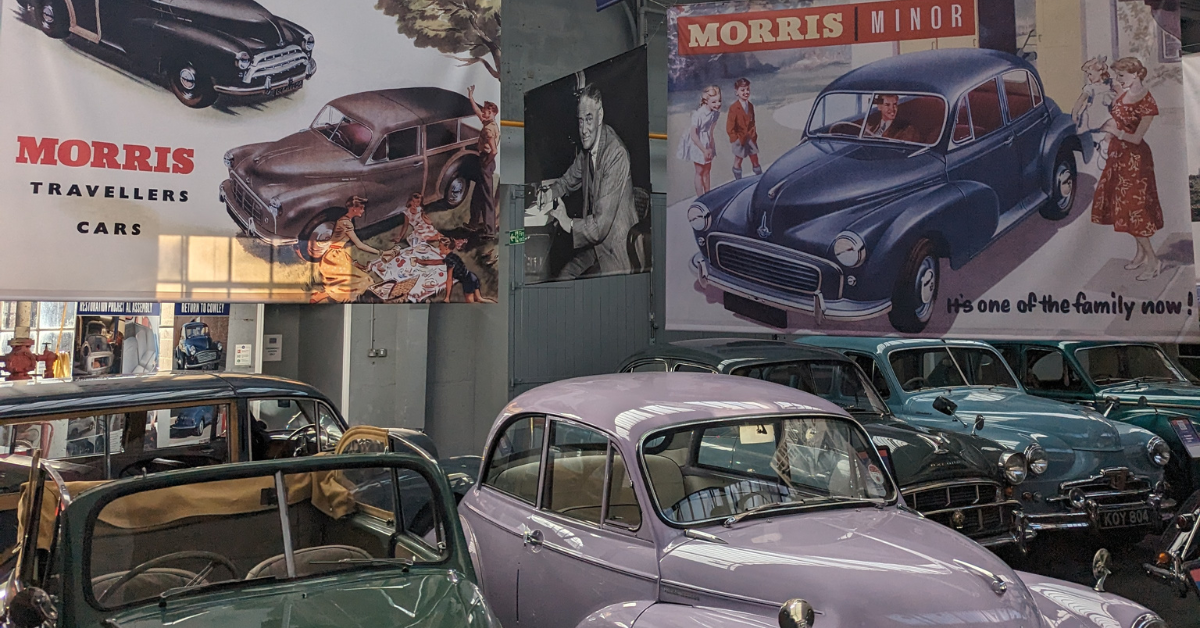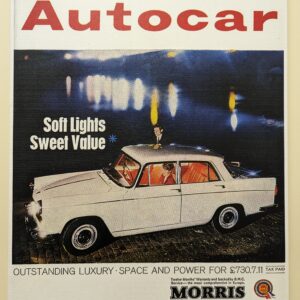I love old cars: the styles, the smells, the interiors, the history. I don’t know a lot about the mechanics, but I love to geek out gawping at such fabulousness. So a trip to the Great British Car Journey in Derbyshire was the peak of excitement for me.
It didn’t disappoint. A comprehensive range of cars from the early days of Austin right through to the recent fates of Jaguar and Land Rover. The journey approach of the museum is incredibly well organised and was the first time I’d had the chance to understand the development of cars in Britain. Particularly well told by relating it to the wider context and the impact of political decisions.
However, this wasn’t what stirred my queerful spirit, it was the wonderful array of advertisements displayed around the museum, a sample of which can be seen in this post’s gallery. Why did it stir my queerful spirit? Well, I couldn’t help but notice the narratives they projected about success.
Advertising has no other purpose than to generate sales. And what motivates people to buy? The belief that something will propel them nearer to living ‘the dream’, making them successful, and discovering the ultimate source of happiness. Capitalism keeps the cogs turning by continually (re)painting the picture of some distant goal: work a little harder, spend a little more, and yes, even you could have this life.
I knew this was the case. I even knew the peak of modernity came with the image of the family unit as the source of a successful society – each unit with a mother, a father and preferably two point four children (I’d learnt this statistic from my sitcom watching childhood). But, I hadn’t comprehended how this had been ingrained in generations through advertising until I walked the Great British Car Journey and noticed the reaffirmation of this model time and time again.
Advert after advert portraying a vision of the happy life: a car, the daddy driving suited up as a successful businessman, the mother as passenger caring for the kids, you too could live this heteronormative dream. Even an advert for a fun convertible is just a temporary hold off on the settled down family life. Queerfully, the couple enjoying the view are living the ‘gay romantic’ life, but of course we queers have hijacked that term.
Speaking of queer, as I hit the 90s section, there in front of me was a fabulously queer advert by Bentley with a feathered up Elton John. I felt somehow the normativity of modernity had been shaken up. I guess because the capitalist heteronormative dream failed and continues to fail. We’re far more varied than that.
Why do I care about some old adverts? I suppose one of the missions of the queerful spirit is to notice how people may have been shaped and influenced, how they may have internalised such images, and to challenge claims that these are somehow natural and the way it should be. Perhaps, they are just another feature of capitalism’s control over the human subject.




























